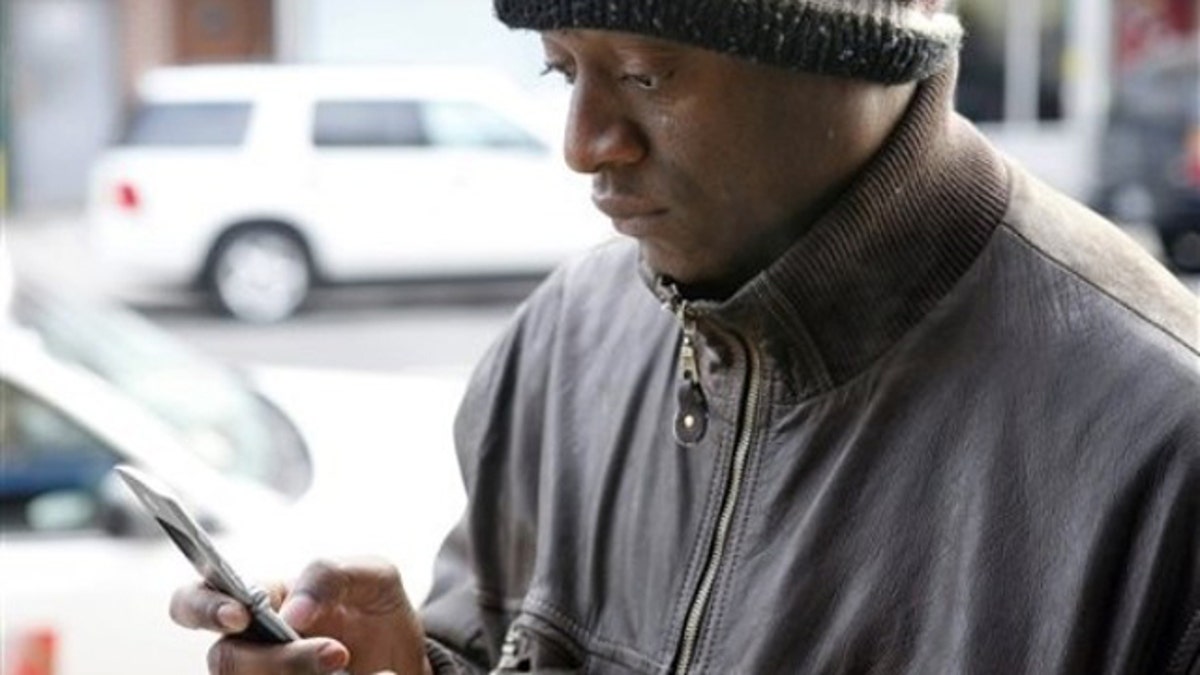
Bernard Toussaint, originally from Port-au-Prince, Haiti, tries to reach his mother in Haiti on his cell phone in New York, Wednesday, Jan. 13, 2010. The International Red Cross says a third of Haiti's 9 million people may need emergency aid and that it would take a day or two for a clear picture of the damage to emerge from Tuesday afternoon's magnitude-7.0 earthquake. (AP Photo/Seth Wenig) (AP Photo/Seth Wenig)
Is it possible to pinpoint your location with nothing more than a cellphone number? Absolutely.
Your smartphone always knows where you are. And thanks to the Life360.com service, powered by technology from a company called Loc-Aid, a parent can locate a child by her phone number or even an elderly parent who has wandered away from home.
Indeed, network location services can save lives, protect children, and enable business services -- and they're available to anyone.
Thanks to a free online demo at Loc-Aid.com, you can type in the cellphone number of anyone in the U.S. and find their precise location in just a few seconds.
Agreements with wireless carriers like T-Mobile and Sprint let Loc-Aid triangulate position using cellular towers and the GPS signal on your phone. In urban areas, the results are more precise than rural areas where there are fewer cell towers.
Locaid adds security measures to keep the site safe: You have to type in your own birthday (to prevent minors from using the service) and the person you are trying to locate must agree to the location search by replying to a text message.
But after validating a phone, Locaid doesn't require the user to be involved. Banks and marketers can search for the location of someone who opts-in to the service at any time.
“App developers can use mobile network location for things like validating legitimate credit card purchases and detecting fraud ... or tracking assets like laptops or street-cleaners or dumpsters,” explained Carolyn Hodge, a spokeswoman for the Loc-Aid service.
Cybersecurity expert Jeanine Swatton says location tracking apps are extremely common. There is a "social-discovery” app called Banjo that helps you find friends based on their GPS coordinates. And Google Latitude provides a similar function. Each of these services are “opt-in” so you have to agree to share your location.
But is there a potential downside? Swatton says location tracking tools are used mostly for legitimate purposes, but warns that apps powered by Loc-Aid could be used for criminal activity -- if a hacker figured out how to bypass security precautions. For example, a hacker could set up a server that captures your location information after Locaid is disabled.
Rob Enderle, an analyst with Enderle Group, said new location-finding services can be abused (like any other service), but that does not mean they should be outlawed. Enderle advises people to be careful about how they use the tools and to disable features you do not need.
Locaid adds several safeguards to make sure its tools are tamper resistant. For example, once you find someone, the service turns off after 15 minutes to prevent someone from tracking you all day.
Dawn Benton, a spokesperson for AT&T, said it is impossible to use location finding services from cell tower triangulation or GPS unless the smartphone user specifically agrees to the search. And FoxNews.com found the text message that asks for consent to be clearly labeled and obvious.
Hodge says Locaid is not that different from other services like Twitter that allow you to share your location with every tweet. (Swatton says she advises people to disable these location features.) And Hodge says Locaid is staunchly in favor of individual privacy protections.
In the end, technology is agnostic, Enderle said, and a company that makes a new technology is rarely liable for how it is used.
Locaid offers only a demo of its location service, but it proves that technology is always advancing -- and so is our definition of privacy.








































